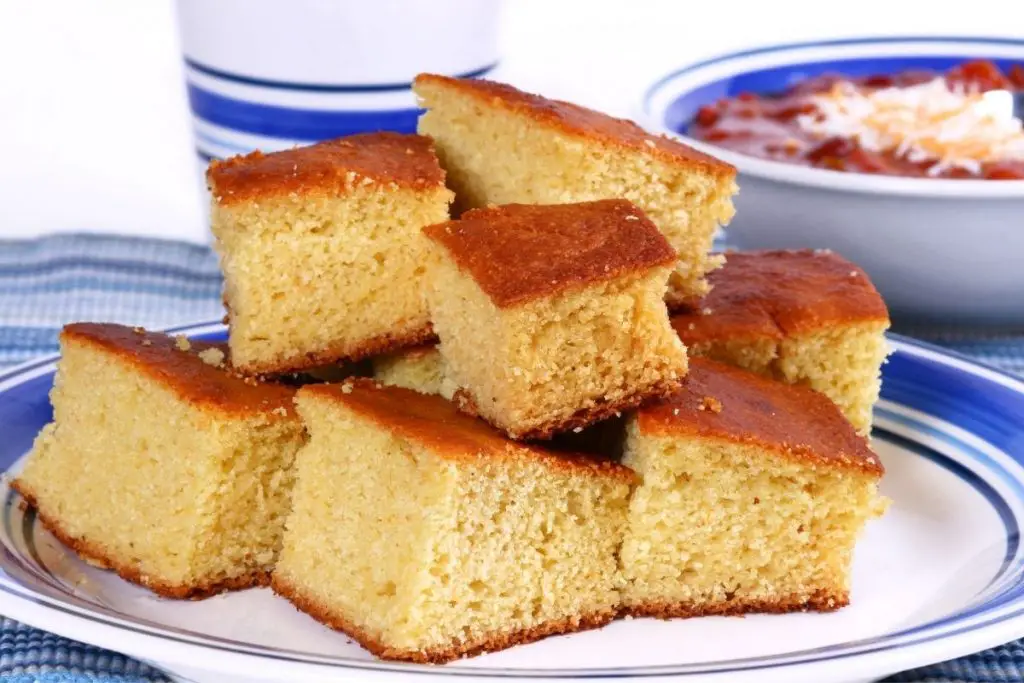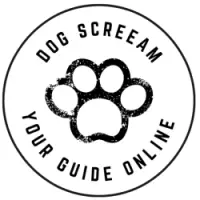Dogs are omnivores which means they can eat both meat and vegetables. However, can dogs eat cornbread?
We think of cornbread as mainly vegetable-based. Even though it has a high content of milled corn, it does not mean it is necessarily good for your dog to eat cornbread.
Cornbread also contains wheat and other ingredients that are less healthy for your pooch. Does that mean dogs can’t eat corn? They can eat corn but not cornbread. Let’s find out more about corn and how you can safely add it to your dog’s diet.

Corn On The Cob For Your Dog
Can I feed corn on the cob to my dog? You can feed a small amount of corn on the cob to your dog. Corn can still give your dog indigestion so it is best to feed it to him in between meals.
When your dog has had his main meal for the day, you can go ahead and give him a small slice of corn on the cob. Should you feed him entire corn on the cob? To be safe, it is best not to do so.
The problem with natural corn is that it is hard for the canine digestive system to break down. As a matter of fact, it is pretty tough on the human digestive system as well. For instance, if you are trying to lose weight, corn is one of those foods you want to go easy on.
Is Corn Added To Dried Dog Food And Kibble?
Corn is often one of those natural foods that is added to your dog’s food. You will find corn in kibble, treats, and canned dog food.
The difference between corn found in dog food and natural corn is that the corn found in dog food has been milled.
As a milled food product, corn is much easier for your dog to digest. It will not irritate his stomach and gut. A dog with a sensitive stomach may experience excess flatulence and bowel movements should his food contain too much-milled corn.
Unfortunately, corn is an irritant to some dogs just as it is to some humans. If you know that your dog is sensitive to corn make sure you read the label carefully. Incidentally, your dog may also experience an adverse reaction to rice.
Both grains have a hard outer layer which can be difficult to digest.
GM Corn vs Organic Corn
The jury is kind of out on this one.
It would be safe to say that we are all a bit concerned about the effects of GM food. We really don’t know enough about genetically modified food to make a decision as far as long-term safety is concerned. But, since it was introduced a larger percentage of people have suffered from allergic reactions including eczema.
The same goes for our pets. If your dog has skin problems, your vet is likely to ask what he eats. Should his food contain a large of GM food, he will probably recommend you to exclude it from your dog’s diet. Read the bag and you will find if your dog’s food contains GM ingredients.
A common GM ingredient is corn. Organic corn seems to be fine and causes fewer adverse side effects when it comes to dogs’ diets.
Can I Add Corn To My Dog’s Home-made Snacks?
There is no reason why. But, you don’t want to add corn as kernels. When you are diligent enough to make your dog’s own snacks, you can add mashed corn.
Mashed corn is really easy to make. All you have to do is to steam the corn and then smash it up. It becomes a paste that is easy to add to homemade dog treats.
Corn prepared in this way can add a lot of flavor to your dog’s treats. Especially GM-free corn is packed with many microminerals that are essential when it comes to keeping your dog healthy.
Where Can I Buy GM Free Corn?
One of the best places to buy GM-free corn is to buy it online. Sites such as Amazon sell certified GM-free corn.
When you are planning to use a lot of it for different purposes, it is a good idea to bulk buy it.
You will be pleasantly surprised but GM-free corn is not very expensive when compared to regular corn. In other words, there is no reason at all why you should not use GM-free corn in all of your cooking and baking.
If you are currently experiencing digestive and skin rashes that you can’t explain, you may find that they disappear. The same thing goes for your dog. If he is experiencing digestive and skin problems, it is likely that they will clear up when you switch to organic corn.
Can Dogs Eat Cornbread?
As we have established, it is not so much the corn that causes a problem. It is the wheat that is added to cornbread.
Wheat contains gluten that can cause problems in your dog’s gut. It may even lead to serious intestine issues. Because of this reason, it is best if your dog stays away from cornbread and any other bread. It is one of those foods that is not really canine-friendly.
In Conclusion,
When you want to make your dog’s diet healthier, it is best to focus on adding more vegetables and fruit. It is not very hard to do.
You should add fruit and vegetables as part of your dog’s food allowance. Always remember that they still contain calories and count towards your dog’s daily calories.
If your dog has diabetes, you should avoid feeding him corn altogether. It is rather high in carbohydrates. Too high of a carbohydrate intake will convert into sugar in your dog’s body. That is particularly true of older dogs that are less active.
Cornbread is absolutely fine for you, but not meant for your dog. Make sure that you feed your furry friend a healthy diet that contains all of the vitamins and minerals he needs to stay healthy for longer.
